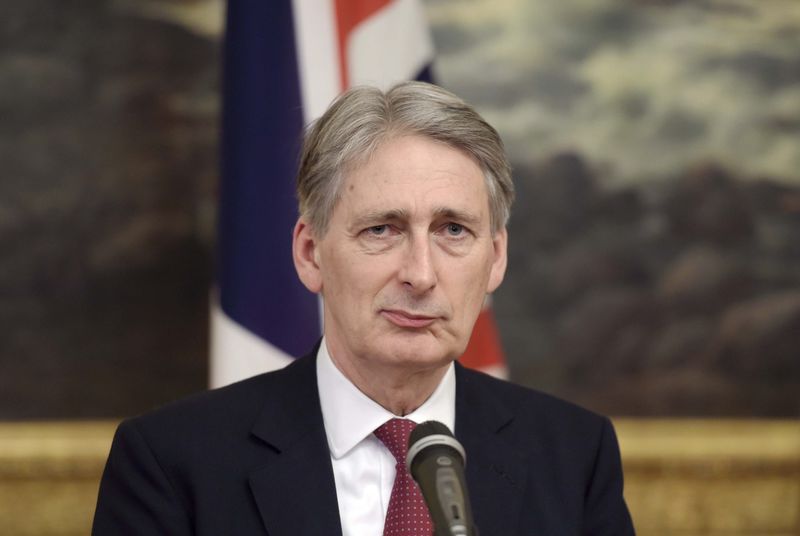By Kylie MacLellan
LONDON (Reuters) - The foreign secretary said on Tuesday he was confident of negotiating a "substantial" package of reforms in the European Union after visiting capitals across the region and being told by EU members that they want Britain to stay in the bloc.
Prime Minister David Cameron has promised to renegotiate Britain's ties with the EU ahead of a referendum on its membership if his Conservative party is re-elected in a national vote in May.
Philip Hammond, who took up his post last summer, has been tasked with touring all 27 other member states before that election to seek common ground on areas Britain would like to see changed such as handing more power back to national parliaments and making the EU more economically competitive.
So far he has visited 18, including France, Germany, Italy, Poland, Romania and Denmark.
"Now that I have embarked upon the exercise that I am doing ... I am very clear that we will be able to negotiate a substantial package of reform," Hammond, regarded as a tough Eurosceptic, told a committee of British lawmakers.
"The message I have heard very, very clearly is that people for their own selfish reasons want Britain in ... we are an important element in a very delicate balance of power within the European Union and, for different reasons, everybody fears the consequences of Britain leaving."
He said Britain was aiming for a package of reforms that could be agreed by all 28 member nations but that the bloc had previously shown that it could be "quite a flexible organisation".
With immigration a top concern among voters, Cameron has made controlling the flow of EU citizens a central part of the renegotiation effort. EU leaders including Germany's Angela Merkel have said the bloc's fundamental principle of freedom of movement cannot be tampered with.
Cameron has pledged to curb EU migrants' access to welfare payments, and Hammond said many European partners had asked Britain to look at what more it could do domestically to tackle abuse of free movement by tightening up its own system.
"We are wide open to abuse ... There are going to be more measures we can introduce," he said.

"But there will be some areas where we need agreement ... to change the way European Union rules work if we are going to have a sufficient impact on migration numbers to satisfy (the) British public."